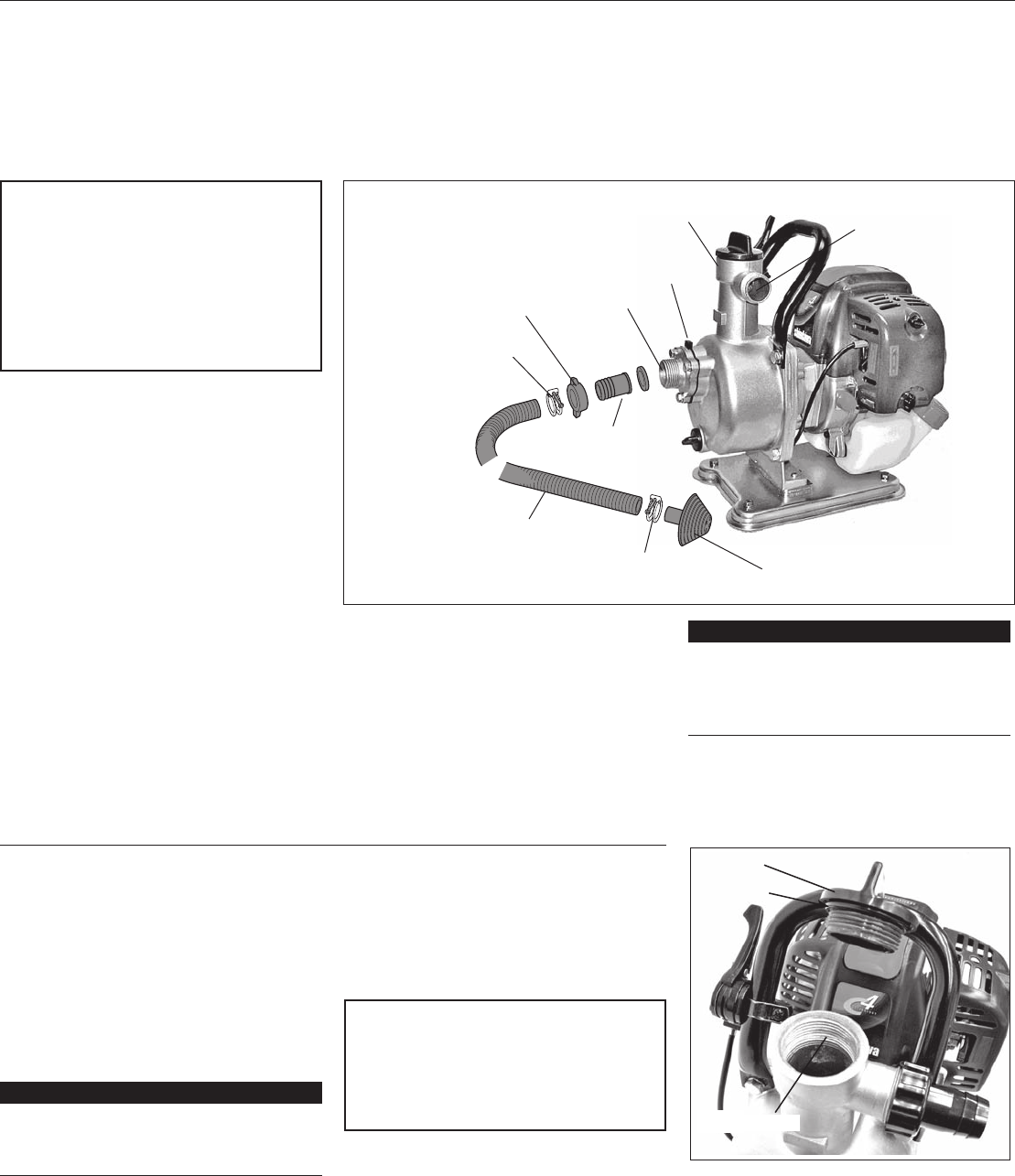
5
Prior to Assembly
Before assembling this unit, make sure
you have all the components required for
a complete unit:
GP3410 engine-driven pump
Spark plug wrench
Assembly
Spanner
3mm Hex Wrench
4mm Hex Wrench
Install the Suction and Discharge Hoses
Assemble a barbed hose fitting, ring
nut, and gasket as shown, and thread
the completed hose fitting assembly
onto the pump suction port. Assemble
the remaining hose fitting to the pump
discharge port.
Push a 1.0" suction hose (not provided)
over the suction hose fitting on the pump
body, and secure with a 1.0" hose clamp as
shown. Working at the opposite end of the
suction hose, use a second 1.0" hose clamp
to install and secure the suction strainer.
Submerge the suction hose strainer in
the water source. For maximum per-
formance, avoid placing the strainer
directly in heavy accumulations of
leaves, silt, or other debris.
1.
2.
3.
IMPORTANT!
Place the pump as close to the water
source as possible. Increases in suction
lift will lower pump performance. Do not
exceed maximum suction head of 26 feet.
CAUTION!
This pump is intended for pumping
fresh water only.
Ingested debris can damage the
pump impeller and seals.
Never operate the pump if the
strainer is missing or damaged.
Suction
Hose
Suction
Strainer
Hose Clamp
Barbed Hose
Fitting
Hose Clamp
Ring Nut
Gasket
Suction Port
Discharge Port
Install the discharge hose (not pro-
vided) and secure with the remaining
1.0" hose clamp.
Recheck that both the suction and dis-
charge hoses are free from obstruc-
tions, and that all connections are
tightly secured.
4.
5.
Figure 1B
Priming Port
Parts bag including:
1.0" hose clamps (3 each)
hose fittings and gaskets (2 each)
strainer
●
●
●
Priming
Before the pump can develop suction
or “lift” at the water source, the pump
impeller must first be primed by filling
the pump housing with water. Once the
GP3410 has been primed, additional prim
-
ing should be required only if the pump
has been drained or otherwise emptied.
Remove the filler plug at the top of the
pump housing. Use care not to lose the
sealing ring beneath the filler plug.
1.
Filler Plug
CAUTION!
Never allow the pump to run dry!
Operation without water can perma-
nently damage the pump seals.
Fill the pump housing through the
priming port (Figure 2) with clean
water until water overflows from the
filler plug hole on the pump body.
Replace and securely tighten the filler
plug.
2.
3.
Figure 2
Priming port
Sealing ring
IMPORTANT!
A damaged or missing filler plug seal may
allow air to leak into the pump housing.
Air leakage can lower performance!


















